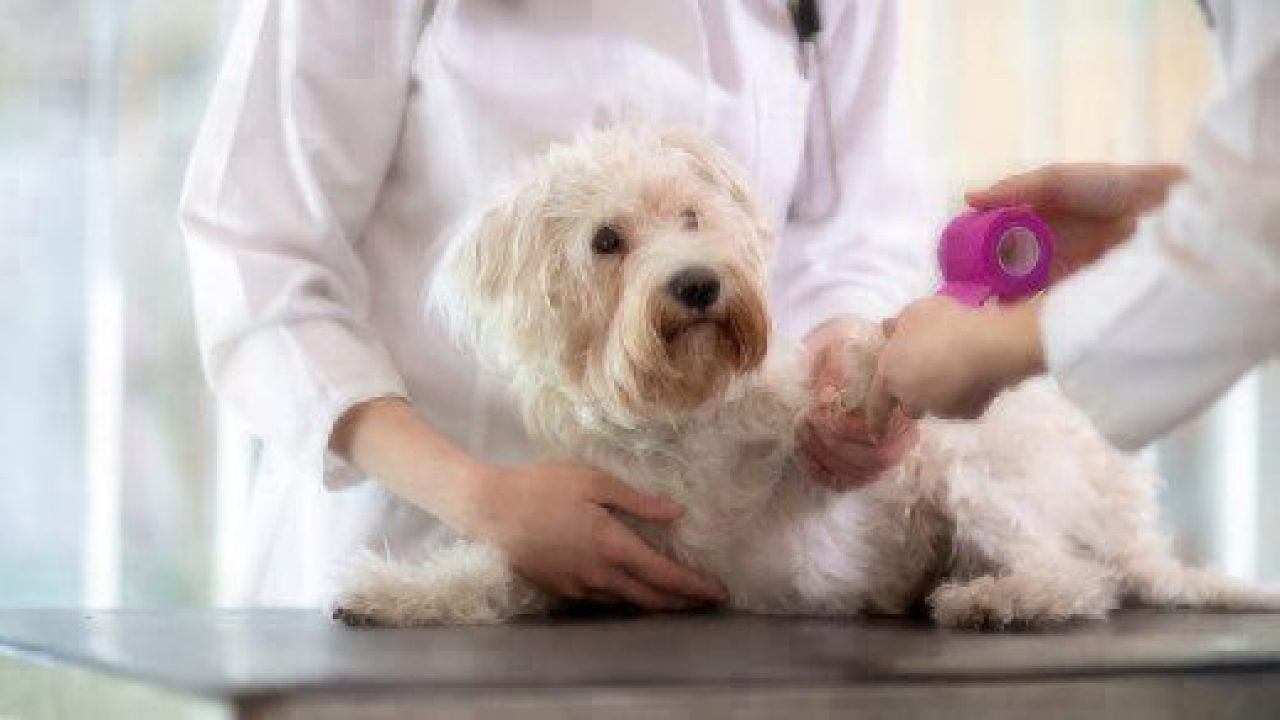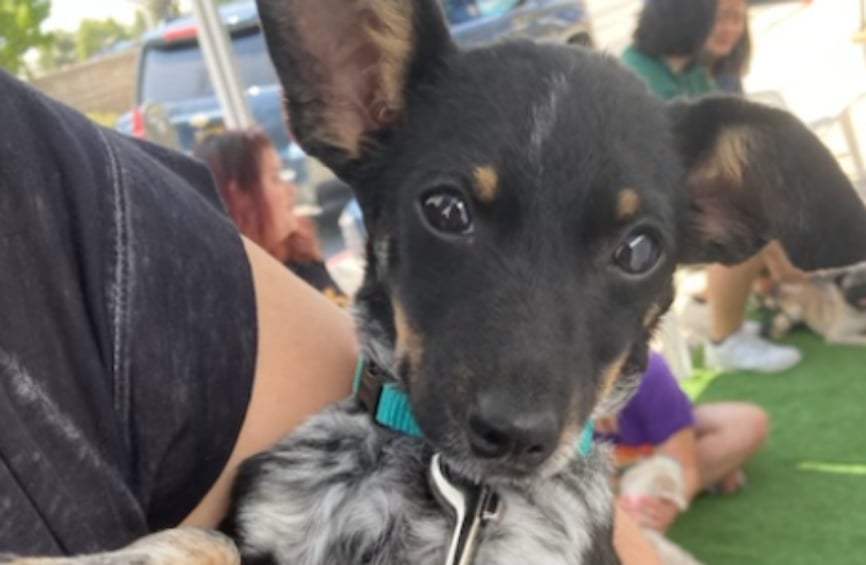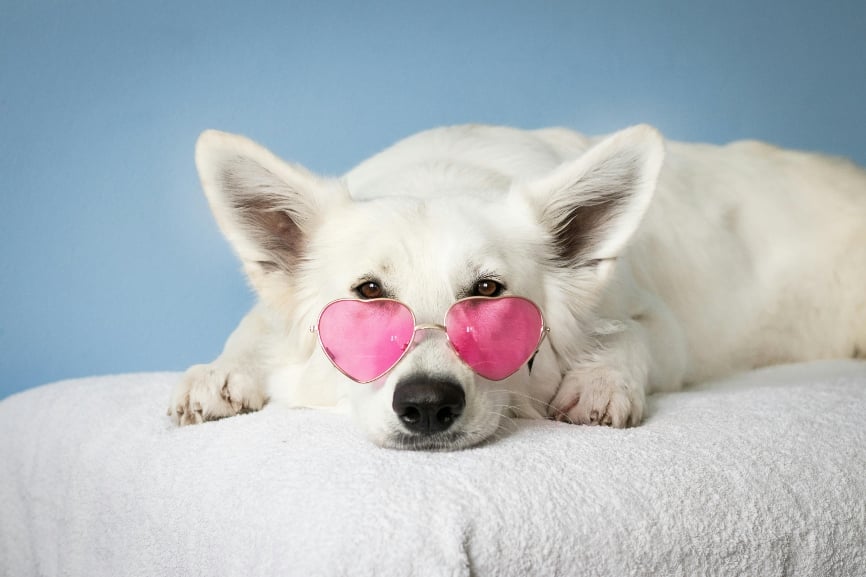Table of Contents
Key Takeaways
- Muscle strains are common in puppies and often caused by roughhousing, falling, or strenuous exercise.
- Strains can take weeks to months to heal in a puppy.
- A veterinarian may do a physical exam and take x-rays to diagnose a muscle strain.
- While a muscle strain heals, it may be necessary to confine your dog and limit activity.
- Keep a close eye on your young puppy and avoid running together and rough playtime to prevent muscle strains.
Since puppies have bodies that aren’t as strong as adult dogs, they can unintentionally overexert or injure themselves. Muscle strains are one fairly common injury among young pets. Puppies’ muscles aren’t fully formed yet and can be easily hurt. Take steps to protect your puppy, but also watch for symptoms.
Strains versus sprains
Before we go any further, let’s make sure that we’re clear on the difference between strains and sprains. Strains are tears to the muscles or tendons; tendons connect muscle to bone. Sprains are tears to the ligaments that connect bones to each other.
In this article, we’re going to focus on muscle strains.
What causes muscle strains?
Puppies want to play with the big dogs, but their little bodies aren’t quite up to it. Overexertion of a muscle can cause a tear or stretch the muscle too far. Trauma is the main cause of most muscle strains, and situations that can cause a traumatic injury include:
- Car accidents
- Fighting or roughhousing
- Falling
- Exercise
Muscle strain symptoms
There are three degrees of muscle strain, depending on the severity:
- Grade I: The muscle may be slightly torn or simply overstretched, with minor swelling and pain. Some minor strains may go away on their own with rest and ice, but if symptoms persist, see your vet.
- Grade II: A more serious tear or stretching has occurred, as is evident by limping, visible swelling, bruising, and pain. Contact your vet if your pet displays these symptoms.
- Grade III: In the third case, the muscle has completely ruptured, with total inability to use the limb and excruciating pain. Seek immediate veterinary attention.
Muscle strain treatment
If your puppy is injured, seek advice from your veterinarian. They will perform a physical examination and may also take radiographs (x-rays) to determine if the pain is caused by a muscle strain or a bone fracture; the symptoms can look very similar.
Treatment for minor to moderate strains typically includes anti-inflammatory medications, cold compresses, and compression bandages (depending on which muscle is injured). Treatment of more serious strains may require surgery to repair the torn muscle, along with medications to reduce inflammation and pain. Physical therapy, including at-home physical therapy and sessions with a physical therapist, will likely be necessary. In some cases, the muscle may not return to its pre-injured state, but will still be relatively movable.
Strains can take anywhere from several weeks to several months to heal.
Recovering from a strain
While your puppy recovers from any injury, it’s important to reduce activity levels in order to allow the injury to heal and prevent further injury. Note that activity levels should be reduced, not completely stopped. If your puppy doesn’t move around at all, the injured muscle might permanently tighten, leading to lifelong mobility problems.
Your veterinarian will provide advice and aftercare instructions specific to your pet’s injury, which may include:
- Confining your dog. You may use a crate or baby gates to section off a small area of the home to reduce your puppy’s movement. Use a short leash when going outside for potty breaks. Confining your dog will help to prevent activities that might make the strain worse or delay healing.
- Reducing activity. Don’t allow vigorous playing, running, or jumping on/off furniture. Instead of physical exercise, you can keep your puppy stimulated with mental games such as puzzle toys with treats stuffed inside (e.g., KONG toys) or hiding kibble or treats under cups.
Preventing Muscle Strains
Though they love to wrestle and play, puppies are more fragile than full-grown dogs and must be handled with care. Keep a close eye on your puppy when around unfamiliar dogs; never allow them to go unleashed outside unless you are in your fenced backyard. Refrain from running or jogging with your puppy until he’s older than one year old – puppies need different exercise than adult dogs. If playtime with other dogs that are older and bigger starts to get too rough, be sure to make the dogs take a break to prevent an accidental strain or injury.
The content is not intended to be a substitute for professional veterinarian advice, diagnosis, or treatment. Always seek the advice of your veterinarian or other qualified health provider with any questions you may have regarding a medical diagnosis, condition, or treatment options.







